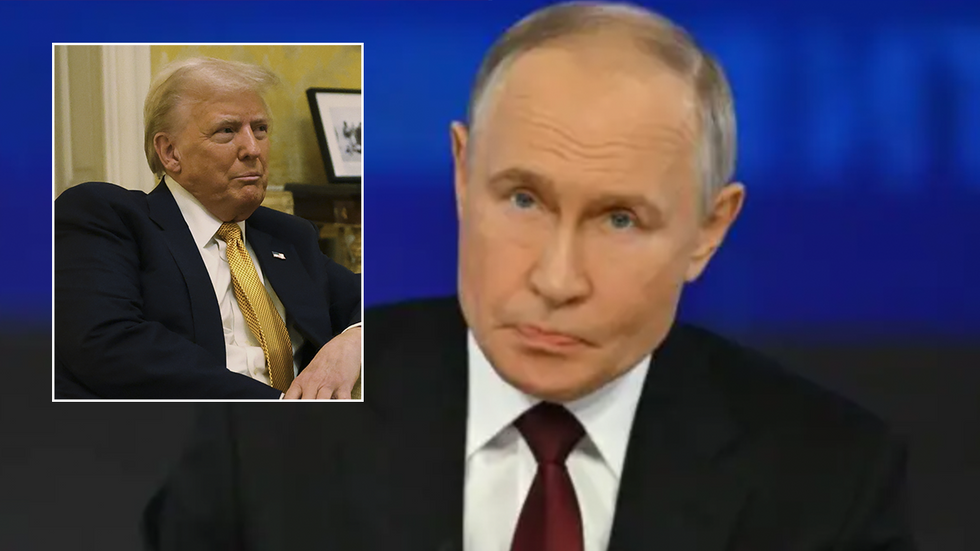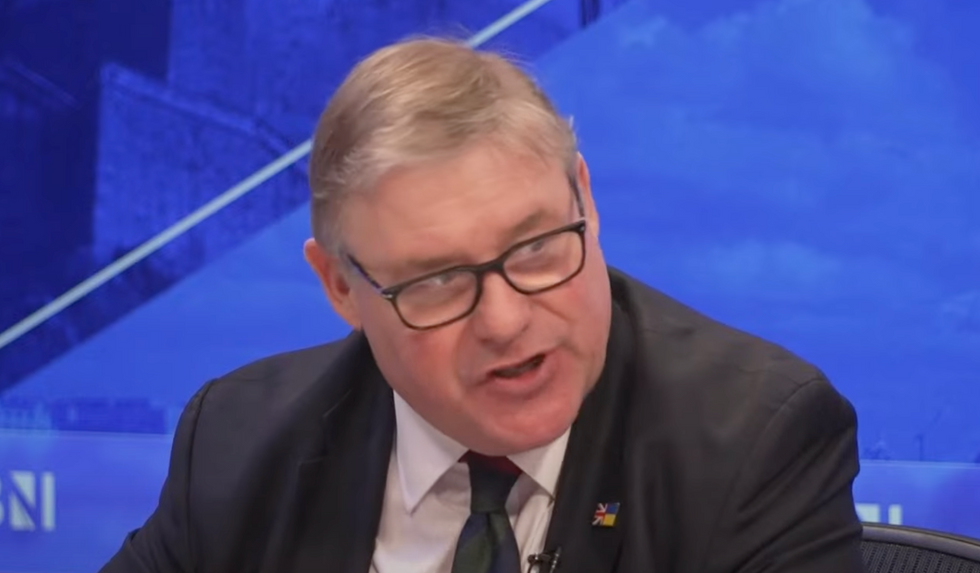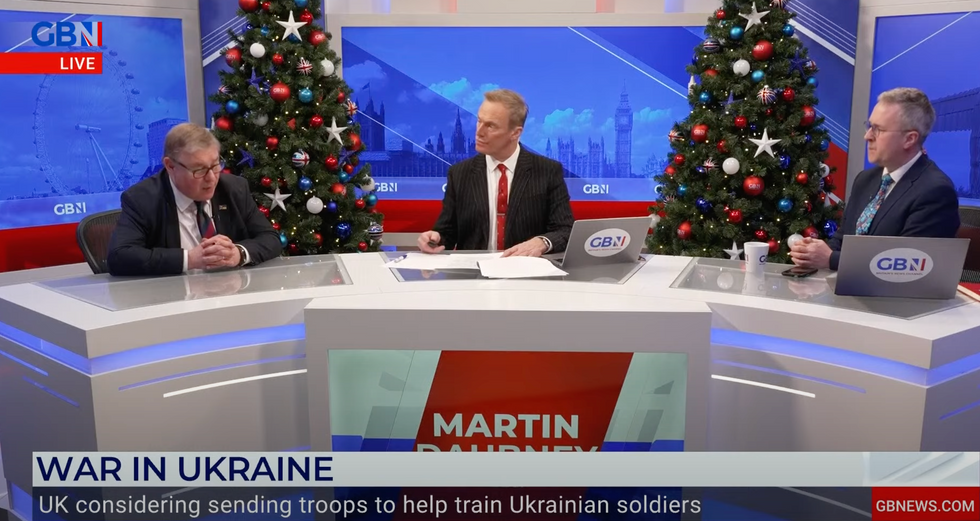Vladimir Putin ‘risk’ outlined as Donald Trump left with ‘a lot to weigh up’ after Russian President’s TV address
Conservative MP Mark Francois has warned that freezing the conflict in Ukraine along current battle lines could hand Vladimir Putin a victory.
Speaking on GB News, Francois addressed concerns about potential peace negotiations, saying: “The risk is if they were to freeze the conflict along the current lines, as it currently is, which there is some talk of, Putin would say ‘alright, I have the Crimea, the Donbas, I stopped Ukraine joining Nato, I won’.”
The comments come as Putin claimed Russian forces are making advances along the entire battle front in Ukraine.
Francois cautioned against predicting the actions of US President-elect Trump when he comes into office, noting: “For us all to sit here and pretend to know exactly what Trump is going to do, on past experience that might be a mistake.”

Francois expressed particular concern about reports of chemical weapons being deployed by Russian forces.
“Russians may, and I use the word conditionally, have begun to use chemical weapons in Ukraine,” he told GB News.
LATEST DEVELOPMENTS
- ‘Do NOT test our resolve!’ Farmers in uproar after Labour declares they’re ‘in it for the money’
- Reform UK eyes huge electoral upset TODAY as ‘last chance’ to usurp Labour in 2025 looms
- Teen gang jailed for total of 79 years after murders of Max Dixon and Mason Rist in Bristol

The Conservative MP noted he had raised the issue with a minister but received no definitive confirmation as the matter was still under investigation.
“If, and I say again if, if Russia have resorted to chemical weapons, that is an escalation,” Francois said. “If it’s true, they should be called out.”
The US imposed new sanctions on Russia in May 2024, accusing it of using tear gas and chloropicrin on Ukrainian battlefields.
In November 2024, the Organisation for the Prohibition of Chemical Weapons confirmed the presence of CS gas in trenches in the Dnipropetrovsk region of eastern Ukraine.

The substances were reportedly delivered by grenades or drones.
Chemical weapons have been outlawed since the Geneva protocol of 1925, with the chemical weapons convention making their prohibition absolute.
The alleged use of chemical substances has been reported at various locations in eastern and southern Ukraine, including Bakhmut, Mariupol and Donetsk.
According to experts, the effects of chemical agents like tear gas and chloropicrin largely depend on whether troops are prepared for such attacks.
Against unsuspecting targets, these substances can cause painful irritation to eyes, lungs and skin, potentially incapacitating soldiers through induced vomiting.
For well-trained troops with protective equipment, the effects are milder but still significant.
Protective gear restricts movement, while the constant threat creates psychological strain on soldiers.
The weapons also place additional pressure on medical services and troop rotation systems.
While these chemical attacks may provide short-term tactical advantages, experts suggest they are unlikely to cause significant shifts in frontline positions.

